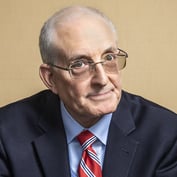Proposals by Washington deficit hawks to cap or eliminate tax incentives that encourage Americans to save for retirement are “short-sighted”and could contribute to sending millions of workers into retirement with little or no savings, said Putnam Investments president and CEO Robert Reynolds.
Speaking before the Greater Boston Chamber of Commerce Executive Forum on Tuesday, Reynolds called on the congressional delegation in Massachusetts, the birthplace of the mutual fund industry, to oppose any policy shift that could undercut incentives for workers to save or employers to offer workplace savings plans.
“We absolutely need to take steps to balance the federal budget and put the nation on the path to fiscal solvency, but nothing we do to achieve national solvency should come at the expense of personal solvency, especially private retirement savings or incentives for companies to offer 401(k) plans to their workers,” Reynolds said. “Those most severely hurt if savings incentives were cut would below and moderate income workers who need help in saving for their futures. I urge the Massachusetts congressional delegation to take the lead in defending policies that enable millions of working Americans to save for a secure and dignified retirement.”
Reynolds noted that workers earning less than $100,000 annually received 62% of all retirement-related tax expenditures while paying just 26% of federal income taxes, which he said was contrary to any notion that tax deferrals benefit only the well-to-do. By contrast, he said workers earning more than $200,000 annually received just 11% of all retirement-related tax expenditures despite paying 52% of all federal income taxes.








 May 24, 2011 at 02:52 PM
May 24, 2011 at 02:52 PM










